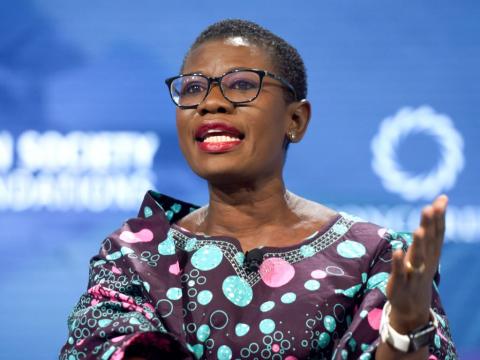By Mohamed Jaward Nyallay
A revised property tax regime by the Freetown City Council (FCC) could have dire consequences for tenants in the capital city by increasing the cost of rent.
The tax system which is expected to go into effect anytime, has already left many residents of Freetown concerned. Some took to social media to condemn it.
Over the last week, FCC officials have been promoting the new tax regime which the council insist is “fair” and “equitable”. They say the review process took place in the last 18 months. It entailed the registration of every house in the city.
In a video released by the council, Mayor Yvonne Aki-Sawyerr said 60,000 more households have been captured as a result of the registration process.
This, at the very least, guarantees the council to make at least double its revenue from property tax.
“We did this because the system before wasn’t really fair. We only had 57, 000 properties in a city of 1.2 million people. Now we have been able to capture all the properties, so there will be fairness for all of us who live in this city,” Mayor Aki-Sawyerr said.
The mayor added that the system which was previously used to calculate the tax was flawed. She said the new system is going to calculate the property tax based on 15 characteristics.
“We only assessed the property based on its size, so whether it was a zinc, wooden or cement house they all paid the same rate. This wasn’t fair,” she said.
The new parameters to be looked at include the roofing, the surface area of the building, and the base value. People with bigger and sophisticated houses will pay more than those with basic structures.
“Some property rates will increase whiles others will decrease. And even those that will increase, on average the increase wouldn’t be more than Le 1.5 million, which is for much bigger houses like 7 bedrooms or more,” Mayor Aki-Sawyerr.
As “fair” as the system maybe, tenants are now worried. In a city with acute housing shortage and expensive rents, the new system will give excuse to house owners to increase rent.
House owners and landlords are already paying Withholding tax to the National Revenue Authority (NRA), which is around 10% on the total rent paid annually.
Businesses are also paying other taxes to the NRA and the FCC.
Critics say the timing of the introduction of the new system is bad, coming not only as the world battles the Covid-19 pandemic which has disrupted livelihoods and businesses.
Mohamed Nabieu resides in a one bedroom flat with a living room and bathroom. He says he is paying Le 3.5 million ($350) every year as rent. He is worried now that FCC just gave his landlord a reason to add his rent at the end of the year.
“I am concerned about this. Even before this tax, house rent and everything else has been increased. Now that this whole tax thing has been done, if it is not properly handled, they (landlords) may take advantage of the system and increase prices,” he said.
Mustapha Fofana runs a clothing shop in central Freetown. He pays Le 20 million ($2000) annually as rent for his shop. He told Politico that business is difficult and the revised tax may not help at all.
“The Coronavirus has really affected us. It takes two days for us to sell a pair of jeans or top. The situation isn’t easy,” he said.
“This tax is going to affect us because the house owner may pay more money and maybe this will raise our rent. And we won’t have a choice but to pay him because this is where we do business and get our living,” Fofanah added.
To help save money for people, the central government has moved on with plans like tax exemptions and deferrals, as effort to cushion the effect of the COVID-19 pandemic.
The FCC say its own action to cushion the effect of covid-19 is in the form of reduction of penalties for late payment.
“FCC has reduced the penalty charge for those who do not meet the 30th September payment deadline from 15% to 5%. Additionally, the distribution of property rate demand notices will be phased, starting with the top 50% of properties,” the council said.
No tax relief has been giving by the council in light of the COVID-19 pandemic. The council states on its website:
“No tax relief is provided this year for property and business owners. Whiles the COVID crisis presents challenges for all Sierra Leoneans, it also makes it more important than ever to respond to the crisis and provide support to our most vulnerable citizens.”
Copyright © 2020 Politico Online








